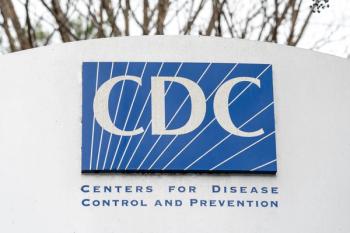
Patients with type 2 diabetes (T2D) who initiated statins experienced reductions in major cardiovascular disease (CVD) and mortality across a spectrum of predicted 10-year risk.

Patients with type 2 diabetes (T2D) who initiated statins experienced reductions in major cardiovascular disease (CVD) and mortality across a spectrum of predicted 10-year risk.

Pharmacists enhance community health through outreach programs, offering vaccinations, health screenings, and education to improve access and trust in health care.

Toothpaste tablets revolutionize oral care with eco-friendly, convenient options, while pharmacists guide consumers in making informed choices for dental health.

Gestational diabetes disrupts RNA splicing in the placenta, revealing potential targets for improving pregnancy outcomes.


The guidelines are believed to promote screening adherence by providing women with a more comfortable, accessible, and less stressful testing option.

New oral GLP-1 agonist orforglipron cuts A1C and drives meaningful weight loss in trials, offering easier dosing than injections.

Morgan McSweeney, PhD, discusses why current US advisory structures are vulnerable to political influence, the vital role pharmacists play in sustaining vaccine confidence, and why universal hepatitis B vaccination remains essential in the US.

Federal vaccine recommendations for pediatric patients shift dramatically, reducing routine immunizations from 17 to 11, sparking debate on safety and efficacy.

Intravenous laser irradiation of blood shows promise in lowering triglycerides and improving lipid profiles in patients with dyslipidemia.

Enhanced communication between field representatives and case managers improves medication access for patients with rare diseases.

Psychiatric pharmacists enhance substance use disorder (SUD) care through interdisciplinary collaboration, advocating for policy changes to improve patient outcomes and access to treatment.

GoodRx enhances access to semaglutide with affordable cash pricing, revolutionizing obesity treatment and supporting patients in weight management.

Morgan McSweeney, PhD, discusses the evidence behind the hepatitis B vaccine’s safety, how pharmacists can communicate with concerned parents, and the impact of shifting federal guidance on vaccine confidence.

Psychiatric pharmacists enhance opioid use disorder treatment through innovative protocols, collaboration, and education.

Psychiatric pharmacists enhance substance use disorder (SUD) care by managing medications and treatment strategies.

There are evolving recommendations for aspirin use, including optimal drug dosages and patient selection for effective cardiovascular prevention.

Tradipitant, a novel NK-1 receptor antagonist, was proven effective at reducing the incidence and severity of nausea and vomiting in individuals with motion sickness.

FDA considers relaxing dietary supplement warning labels, raising concerns about consumer safety and informed decision-making among users.

A severe yet often overlooked coinfection with hepatitis B, hepatitis D progresses rapidly—but new therapies are beginning to reshape a long-limited treatment landscape.

GLP-1 receptor agonists show potential in reducing alcohol cravings and addiction behaviors, offering hope for treating substance use disorders.

Expert highlights the critical need to manage skin toxicities in oncology, ensuring effective cancer treatments while addressing patient well-being and adherence.

The FDA approval of Boncresa and Oziltus, new denosumab biosimilars, enhances access to treatments for osteoporosis and cancer-related bone loss.

Pharmacists optimize dopaminergic therapy, mitigate medication-induced psychosis, and guide antipsychotic selection to improve outcomes in Parkinson disease psychosis.

New research highlights the efficacy and safety of HRS-1780, an investigational nonsteroidal MRA, in treating chronic kidney disease (CKD).

New findings on nodal radiation for breast cancer patients highlight the importance of lymph node involvement and tumor size in treatment decisions.

A long-term study reveals that high-fat cheese consumption may lower dementia risk, challenging traditional views on dietary fat and brain health.

Prolonged exposure to specific air pollution components significantly increases depression risk in older adults, highlighting the need for targeted regulations.

The FLEX study enhances breast cancer treatment by integrating genomic data, guiding therapy choices, and improving patient outcomes.

Research reveals that wildfire smoke exposure significantly impacts pediatric asthma control in the northeastern US, highlighting urgent climate health concerns.